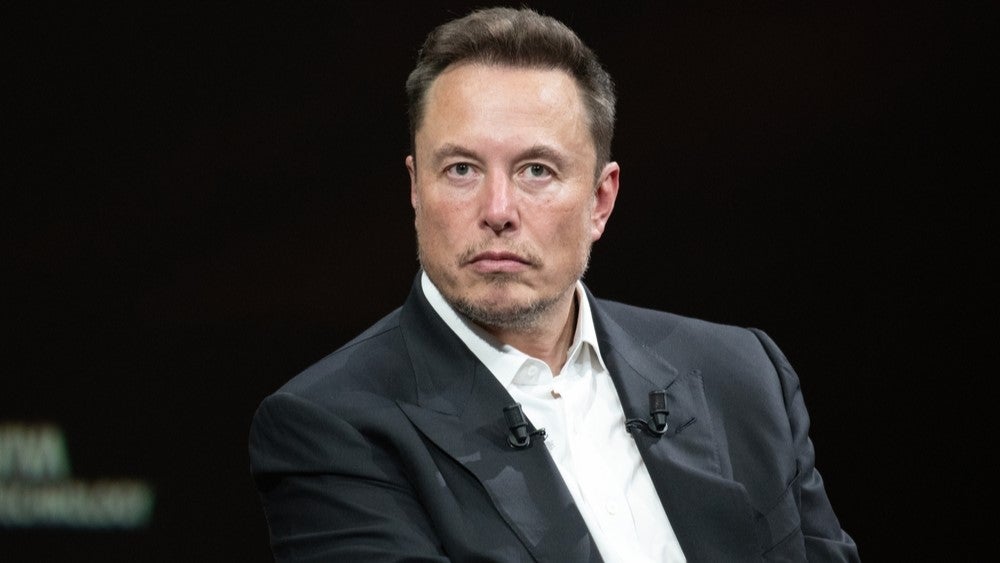Since Elon Musk’s takeover of X – née Twitter – in October 2022, the platform has repeatedly found itself at the centre of controversy. This has resulted in a mass X exodus, as businesses look to distance themselves from Musk’s outspoken and right-leaning views on topics of international importance, from conspiracy theories to US leadership and UK civil unrest.
The latter constitutes the most recent X-related outrage, sparked when Musk posted “civil war is inevitable” in response to a video of UK rioters shared on the platform on 4 August.
The tech tycoon has also faced allegations of inadequate censoring of material on the platform, with some raising concerns that the mogul’s focus on free speech has allowed X users’ feeds to become echo chambers of hate speech instead.
It is a point highlighted by Goran Calic, entrepreneurial leadership chair at the DeGroote School of Business and visiting scholar at Harvard Business School. He tells Verdict: “Musk has publicly announced that he did not purchase X for economic reasons, but instead to protect free speech on a platform he considers to be the internet’s town square.”
Calic points out that, in many ways, X is in fact the modern day town square. It is the first place Biden announced that he would step down, and it remains a space of rumour and outrage.
For X users though, there is a risk that this place of public conversation could be little more than a game to someone with no vested financial interest. Some saw his unexplained, brief logo change to the Dogecoin cryptocurrency image in April 2023 to be evidence of this, a point emphasised by then-Twitter’s insistence on replying to press requests only with a poop emoji.
Considering Musk’s claim that his purchase of X was not financially motivated, Calic says: “There is also good reason to take him for his word on this – Tesla, SpaceX, Neurolink’s strategies (sustainability, ensuring humanity against existential risks and enhancing human conciseness, respectively) are all consistent with this approach, which is solving really big problems that don’t have traditional business markets/customers. (There was no business model for EVs before Tesla and there is still no market for going Mars).”
However, a platform which appears to be a billionaire’s plaything can quickly lose its appeal to businesses, and the potential of a digital “town square” evidently hasn’t been sufficient to convince a several major businesses to stay on the platform.
Advertisers turned away from Musk
IBM, Paramount and The Walt Disney Company are among the big names that wordlessly stopped posting in November 2023, after Musk responded to an antisemitic conspiracy theory posted on X, calling it “actual truth”.
These companies were also among those that staged a boycott against advertising on X. Others included Apple, which was reportedly X’s biggest advertiser, Lionsgate, Comcast and Warner Bros.
The immediate loss of ad revenue in November 2023 prompted fury from Musk, who was quick to share his stance on his own platform. Two weeks after his problematic comment, he told boycotting businesses to “go f*** yourself”, adding in a post that “No advertiser should be deciding what you are allowed to say … I am prepared to go down with the ship. Long live free speech.”
Goodnight X. En route back to Austin after telling all the advertisers who have left this platform to F themselves on live TV in New York City. I wanted to send a message, loud and clear, that we will not back down. Under no circumstance will I bend to these advertisers. They are… pic.twitter.com/HRz1uSpzBO
— Not Elon Musk (@iamnot_elon) November 30, 2023
Musk has not been all bark and no bite on the issue either. He has launched a lawsuit in Texas against Unilever, Mars, Ørsted, CVS and the Global Alliance for Responsible Media (Garm). It claims that the companies violated US antitrust law, and withheld “billions of dollars in advertising revenue” from X.
The lawsuit is unlikely to be successful, and Musk has reason to be concerned about the loss of income. Calic tells Verdict: “The challenge facing X is that 80% of its business historically came from ads, so this is a really big change to how it does business … businesses that are pulling away are the ones that are most visible – literally the ones that would put their names up-front-and-centre on the platform.”
The issue of association
Companies have not just abandoned advertising strategies on X, however. Increasingly, businesses are announcing that they will no longer use X as a platform to communicate with customers.
Sam Budd, CEO and founder of Buddy Media tells Verdict: “Since Musk took over, X has lost its appeal for many businesses. The platform is no longer seen as a safe space – posting there now carries a risk due to its association with Musk’s controversial political views such as his endorsement of Trump and various conspiracy theories. For a lot of brands, X is no longer a platform they want to be associated with.”
This already-present issue was exacerbated earlier this month when misinformation spread on X (and other platforms) suggested that the killer of three children in Southport was a Muslim refugee who had reached UK shores in 2023 via boat.
Riots across the UK followed, and Musk was accused of stoking the fire, both by posting inflammatory comments, and by allowing his platform’s general failure to censor violent and racist content.
Civil war is inevitable
— Elon Musk (@elonmusk) August 4, 2024
Musk’s comment (and the broader role of social media in the unrest) again threw into the limelight the question of when free speech online crosses into hate speech. It’s a question considered by GlobalData analyst Laura Petrone, who notes the need for better clarity around this point: “There needs to be certainty and clarity regarding when freedom of speech can be restricted by law, and the restriction must be clearly necessary for that purpose. However, this is easier said than done, and how regulators will apply the law while striking the right balance and ensuring freedom of expression will only become clearer over the next years.”
For some businesses, however, Musk’s behind-the-keyboard involvement in the civil unrest marked a tipping point, and it prompted another wave of the X exodus.
One of the most recent exits was from Jisc, which said in a statement shared on X: “In light of recent events that are incompatible with our values as an organisation, and in consultation with our stakeholders, staff and communities we have decided that from Wednesday 21 August 2024 we will no longer be active on X.”
As of today, Wednesday 21 August, Jisc and all sub-brands will cease activity on X. We will continue to operate @jiscmi as a broadcast outlet for any outage issues and technical updates.
— Jisc (@Jisc) August 21, 2024
Read our full statement here: https://t.co/QVrfqvgJ1I
The phrase “incompatible with our values” was echoed across X, including by not-for-profit organisations and apolitical health services.
We have suspended use of this account because the X platform is no longer consistent with our values as charitable organisation.
— The Bay Foodbank (@TheBayFoodbank) August 16, 2024
You can continue to follow The Bay Foodbank on Facebook.
To contact us directly please email –
info@thebayfoodbank.org.uk pic.twitter.com/xkdd67xlBe
We have suspended this account because the X platform is no longer consistent with our values as an NHS emergency service. You can continue to follow North East Ambulance Service on Facebook, Instagram and LinkedIn.
— North East Ambulance Service (@NEAmbulance) August 16, 2024
If you need to contact us directly, email… pic.twitter.com/fIoEB7YuUg
Petrone considers that Musk is accountable for X’s chaos which has given so many businesses cold feet.
“As the owner of X, Musk has a great deal of responsibility over what happens on the platform,” she says. “Musk’s behaviour on X has been extremely irresponsible. Not only did he slash moderation, but he also restored banned accounts spreading harmful content, and he himself has become more outspoken in posting fact-free, controversial assertions.
“His uncooperative attitude towards the European Commission might risk tough sanctions, which could go as far as removing access across the EU.”
















